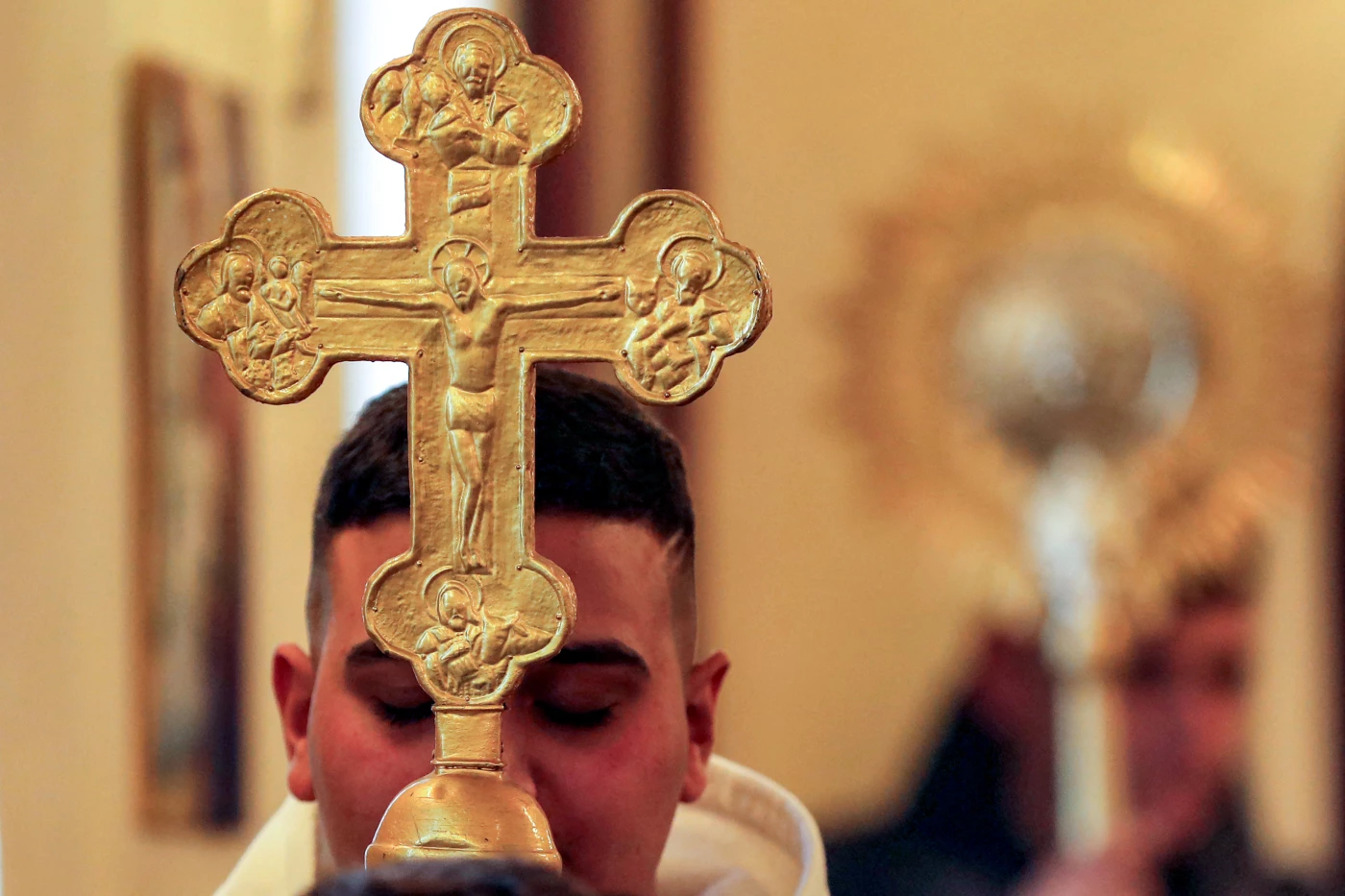DUBAI, UAE - Since 2003, Iraqi Christians have endured a story of displacement and forced absence. As sectarian violence and terrorist attacks escalated, Christians became targets of threats and persecution, from church bombings to kidnappings and property seizures.
Iraqis say these attacks were not just random incidents but events that left a deep impact, driving thousands of Christian families to emigrate. They abandoned homes and communities that had witnessed their presence for centuries.
Amid security and social challenges that hinder their return, Iraqi Christians feel they are losing not only their homeland but also a significant part of their historical identity.
On December 25 each year, Christians worldwide celebrate the birth of Jesus Christ, a tradition that dates to the 4th century, when this date was chosen to commemorate the birth of Christianity’s central figure.
To mark the occasion, The New Region prepared a detailed report on the situation of Christians in Iraq. Reporters asked several Iraqi Christians whether they believe they can return to their homeland after years of emigration.
“One of the main challenges we face as Christians in Iraq is mass emigration, which has drastically depleted our population over recent decades,” said Tony Touma, a Christian Iraqi citizen.
“In every security or political crisis, thousands of Christian families have left the country seeking more stable lives,” Touma told The New Region. “This ongoing depletion not only reduces our numbers in Iraq but also weakens our influence on Iraq’s social and political scene.”
The plight of Iraqi Christians gained international attention in October 2010 when al-Qaeda militants held dozens of Christians hostage inside Baghdad’s Our Lady of Salvation Church. The attackers eventually opened fire, killing 60 people and wounding dozens more in one of the deadliest attacks against Christians in Iraq.
Haya Emmanuel, an Iraqi woman from Mosul, told The New Region that despite a relative improvement in the security situation, the past continues to cast a long shadow.
“Christians were directly threatened in previous years by terrorist groups like ISIS,” she said. “These groups targeted our community, seized properties, and forced us to flee historic areas in Mosul and the Nineveh Plains.”
“Unfortunately, many of us have not been able to return because of the destruction of infrastructure and homes, the psychological trauma we experienced, and the major challenges in reclaiming properties unlawfully seized during that period,” Emmanuel added.
In 2023, several incidents left deep scars on Iraq’s Christian population. A fire in September at a wedding hall in Hamdaniya, Nineveh province, killed at least 130 people, including children, women, and men of the Christian faith.
Cardinal Louis Sako revealed last year that Christians in Iraq now make up just one percent of the population, down from 4 percent, with more than 1,200 killed in 15 years of violence.
A report from Iraq’s Human Rights Commission in March 2021 estimated about 250,000 Christians remain in Iraq, compared with 1.5 million before 2003. It also revealed that 1,315 Christians were killed, 130,000 displaced, and 161 kidnapped between 2003 and 2017, including during ISIS’s occupation of Mosul.
Christianity is one of Iraq’s oldest religions, introduced in the 1st century by Saint Thomas and his followers. It flourished in cities like Hira and Erbil, where the Church of the East became a hub for spreading Christianity to Persia, India, and China.
Over the centuries, Christians in Iraq faced persecution under the Sasanian Empire, destruction during the Mongol invasions, and heavy losses in the 20th century.
Iraq officially recognizes 14 Christian sects, mainly located in Baghdad, Nineveh, and the Kurdistan Region. The most widespread are Chaldeans, Syriacs, Assyrians, and Armenians.
Ali al-Basir, a history professor at al-Mustansiriya University, told The New Region that despite the challenges, some Christian communities still preserve their historic and cultural sites.
“Ancient monasteries and churches testify to the enduring Christian presence in Iraq,” he said.
Although Iraq’s constitution guarantees minority rights, Christians face challenges in reclaiming properties and rebuilding areas destroyed by war. Legal expert Ali al-Tamimi told The New Region that courts oversee personal status cases for non-Muslims, such as inheritance and divorce, under religious laws specific to their communities.
“The law guarantees diversity and protects minority rights,” Tamimi said, noting that court decisions can be appealed to ensure alignment with religious traditions and constitutional guarantees.



 Facebook
Facebook
 LinkedIn
LinkedIn
 Telegram
Telegram
 X
X


